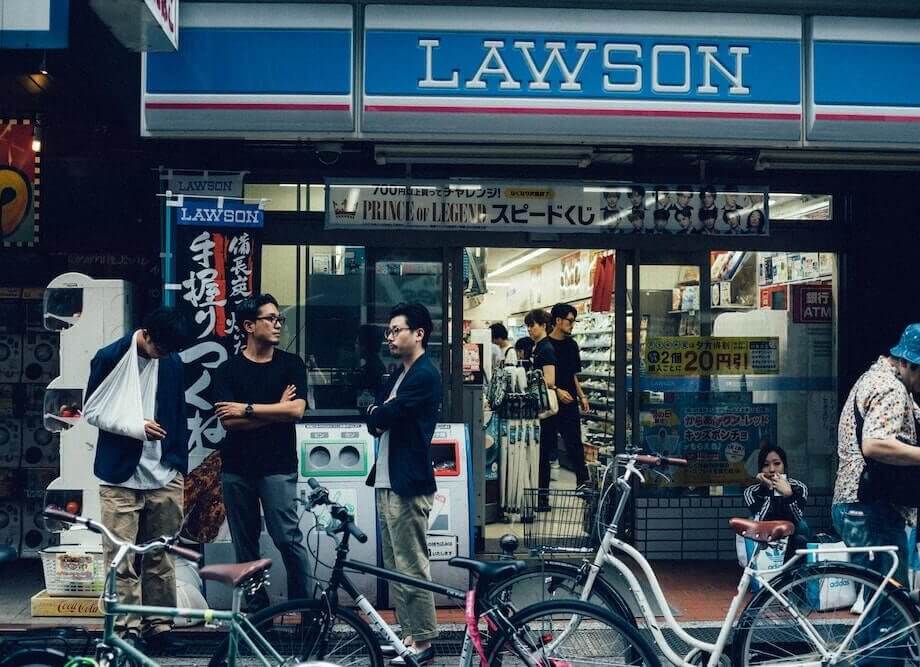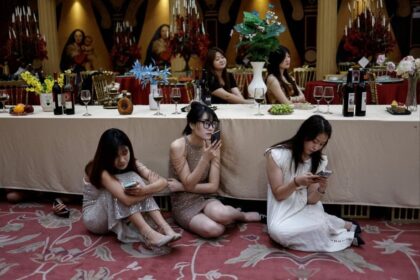Introduction: The Allure of Japanese Convenience Stores
Japan’s convenience stores, known as konbini, are legendary for their accessibility, variety, and high level of service. For many foreigners, including those from France, these stores are a symbol of Japanese efficiency and hospitality. But what happens when a Japanese person accustomed to this convenience moves to France, where the concept of the 24-hour convenience store is almost non-existent? This article explores the cultural and practical differences between daily life in Japan and France, focusing on the role of convenience stores, and how these differences shape the experiences of both Japanese expatriates and French visitors.
- Introduction: The Allure of Japanese Convenience Stores
- What Makes Japanese Convenience Stores Unique?
- French Daily Life: A Different Approach to Convenience
- Living in France as a Japanese Expat: The Challenge of Missing Konbini
- French Perceptions of Japanese Convenience Stores
- Why Are There So Few Convenience Stores in France?
- What Do French People Love About Japanese Konbini?
- Japanese in France: Adapting to a New Shopping Culture
- Broader Implications: What Can Each Country Learn?
- In Summary
What Makes Japanese Convenience Stores Unique?
Japanese convenience stores are more than just places to buy snacks or drinks. They are a cornerstone of daily life, offering a wide range of products and services, often 24 hours a day, seven days a week. In urban areas, it’s not uncommon to find several konbini within walking distance, each stocked with fresh food, household goods, ATMs, and even services like bill payment and package delivery.
For many visitors, the sheer variety and quality of products are astonishing. From freshly made onigiri (rice balls) and bento boxes to seasonal sweets and an array of beverages, the selection is both vast and meticulously curated. The stores are also known for their cleanliness, safety, and the politeness of their staff, which often leaves a lasting impression on foreign tourists and residents alike.
French Daily Life: A Different Approach to Convenience
In contrast, France’s approach to daily shopping and convenience is markedly different. While France has its own version of small neighborhood stores, such as épiceries and mini-markets, the concept of a 24-hour, all-in-one convenience store is rare. Most French stores have limited hours, often closing in the evening and on Sundays, reflecting cultural norms around work-life balance and religious observance.
Supermarkets and open-air markets are the primary sources for groceries, and shopping is typically done once or twice a week, with an emphasis on fresh, high-quality ingredients. The French value tradition, quality, and sustainability, which is reflected in their shopping habits and the types of products available.
Living in France as a Japanese Expat: The Challenge of Missing Konbini
For Japanese expatriates like YouTuber Sawa (Kawano Sawako), who moved to France after marrying a Frenchman, the absence of konbini is a significant adjustment. In interviews and her YouTube channel, Sawa France, she often reflects on the things she misses most about Japan, with convenience stores topping the list.
She explains that while she has adapted to French life, there are moments—especially during pregnancy or late at night—when she craves the instant gratification that only a Japanese convenience store can provide. In Japan, if a sudden craving strikes, a konbini is always nearby, ready to satisfy any need, whether it’s a specific snack, a household item, or even a quick meal.
In France, however, such convenience is hard to come by. Stores close early, and the selection is more limited. Sawa notes that during her pregnancy, she often found herself wishing for the ability to quickly grab a favorite food or drink, only to be reminded that such options simply weren’t available.
French Perceptions of Japanese Convenience Stores
French visitors to Japan are often amazed by the ubiquity and quality of konbini. Many recount stories of being able to find delicious, fresh food at any hour, as well as the impressive range of services offered. For some, the experience is almost surreal, as it contrasts sharply with their expectations based on life in France.
One French visitor, after a late-night stroll in Tokyo, described the sight of a brightly lit, bustling convenience store as “unimaginable” in France, where late-night options are scarce and safety concerns often keep people indoors. The ability to buy a hot meal, withdraw cash, and even purchase an umbrella in the middle of the night left a strong impression.
Service and Hospitality: A Japanese Specialty
Another aspect that stands out to French visitors is the level of service. Japanese convenience store staff are known for their politeness and attention to detail. For example, when purchasing an umbrella or gloves, staff may ask if the item will be used immediately and offer to remove packaging or provide extra assistance. This level of care is rarely seen in French retail environments, where self-service is the norm and customer interaction is often minimal.
Olivier, a French resident in Japan, recalls: “I was surprised when the cashier asked if I wanted to use the umbrella right away and then removed the packaging for me. Such attention to detail is unheard of in France.”
Why Are There So Few Convenience Stores in France?
The scarcity of convenience stores in France is rooted in cultural, economic, and regulatory factors. French labor laws restrict late-night and Sunday work, making 24-hour operations difficult. Additionally, concerns about urban safety and the value placed on work-life balance discourage the proliferation of late-night retail.
Instead, France relies on a network of supermarkets, open-air markets, and small specialty shops. While there are some mini-markets and chain stores in urban centers, their hours are limited, and their product range is narrower compared to Japanese konbini. The French also tend to plan their shopping in advance, buying in bulk for the week rather than making daily trips for small items.
The Rise of Mini-Markets in France
In recent years, France has seen a modest increase in mini-markets and convenience-style stores, especially in major cities like Paris. Chains such as Monop’, Carrefour Express, and Franprix offer extended hours and a selection of ready-to-eat foods, but they still fall short of the Japanese model in terms of variety, service, and 24-hour availability.
Traditional neighborhood stores, sometimes referred to as “Arabes du coin” (corner Arab shops), have long filled the gap for late-night or emergency purchases. However, these stores are typically small, with limited selection and higher prices, and are not open around the clock.
What Do French People Love About Japanese Konbini?
When French people visit Japan, they often develop a fondness for certain konbini products. Popular items include onigiri (especially tuna-mayo), karaage (fried chicken), and a variety of sweets and snacks not commonly found in France. The freshness and quality of these items, as well as the novelty of Japanese flavors, make them particularly appealing.
Some French visitors are also impressed by the healthy options available, such as salads, fruit cups, and vegetable sticks. The ability to find nutritious, ready-to-eat meals at any time is a stark contrast to the more limited offerings in French convenience stores.
Marie, a French tourist, shares: “I loved the onigiri and the variety of snacks. In France, you can’t find such fresh and tasty options at a convenience store, especially late at night.”
Japanese in France: Adapting to a New Shopping Culture
For Japanese living in France, adapting to the local shopping culture can be challenging. The lack of 24-hour stores means planning ahead is essential. Shopping is often done once or twice a week, with an emphasis on buying fresh produce, bread, and other staples from supermarkets or local markets.
Many Japanese expatriates miss the spontaneity and flexibility that konbini offer. The ability to satisfy a sudden craving or handle an unexpected need—like buying a forgotten item or grabbing a quick meal—is something they often reminisce about. Some even report feeling a sense of anxiety or inconvenience when they realize that a quick solution is not available.
Learning to Live Without Konbini
Over time, most Japanese in France adjust to the new rhythm. They learn to plan meals, make shopping lists, and adapt to the slower pace of French retail. Some come to appreciate the French emphasis on quality, tradition, and sustainability, even if it means sacrificing a bit of convenience.
However, the nostalgia for Japanese convenience stores remains strong, especially during visits back to Japan. Many expatriates make a point of visiting konbini as soon as they return, indulging in their favorite foods and marveling at the ever-evolving selection of products.
Broader Implications: What Can Each Country Learn?
The contrast between Japanese and French approaches to convenience and daily life highlights deeper cultural values. Japan’s focus on efficiency, customer service, and accessibility has created a retail environment that is both practical and welcoming. France, on the other hand, prioritizes tradition, quality, and a balanced lifestyle, resulting in a slower, more deliberate approach to shopping and daily routines.
There are lessons to be learned on both sides. Japan’s konbini model demonstrates the benefits of accessibility and innovation, while France’s emphasis on quality and sustainability offers a counterpoint to the culture of instant gratification. As global lifestyles continue to evolve, elements of both systems may find their way into new hybrid models of retail and daily living.
In Summary
- Japanese convenience stores are renowned for their accessibility, variety, and high level of service, operating 24/7 in many locations.
- France has a different approach, with limited store hours, a focus on quality and tradition, and fewer convenience stores.
- Japanese expatriates in France often miss the spontaneity and flexibility of konbini, especially for late-night or emergency needs.
- French visitors to Japan are frequently amazed by the quality, variety, and service of Japanese convenience stores.
- The scarcity of 24-hour stores in France is due to cultural, legal, and economic factors, including labor laws and safety concerns.
- Both countries’ approaches reflect deeper cultural values: Japan’s efficiency and hospitality versus France’s tradition and work-life balance.
- As lifestyles change, there may be opportunities for each country to learn from the other’s strengths in retail and daily living.












